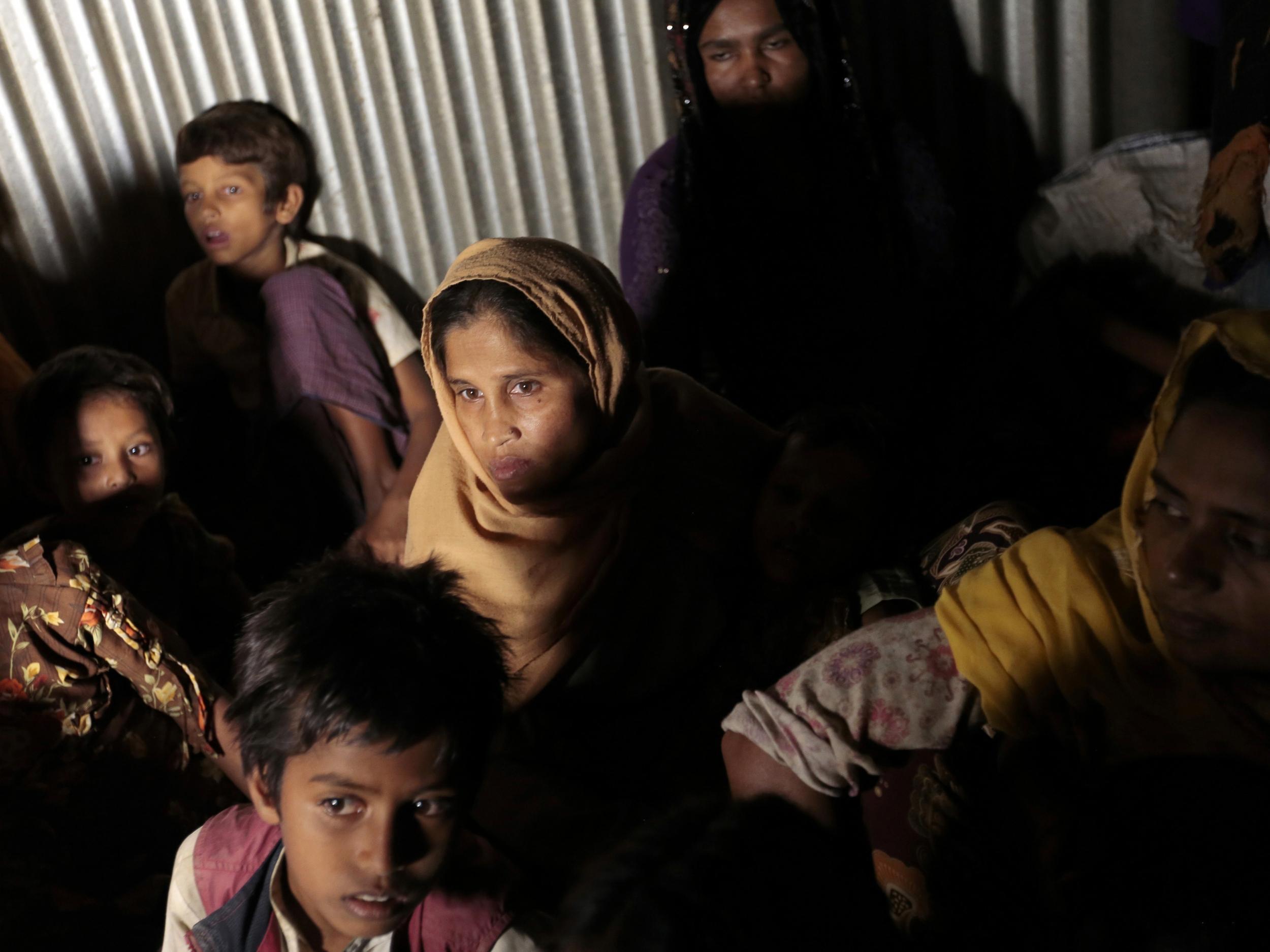Rohignya Muslim women ‘raped by Burma soldiers and abandoned by husbands who blame them’
'My husband told me he is going to leave me. He blamed me for not running away'

Rohingya Muslims say they have been abandoned by their husbands after telling them they were raped by government soldiers.
Women and girls have accused soldiers and police officers of rape and sexual assault during months of violence between Muslims and Buddhists in Burma.
One woman, Ayamar Bagon, told AFP she has been forced to live on handouts after her husband left her when she told him she was gang-raped by soldiers.
"I was raped close to my due date, in my ninth month of pregnancy. They knew I was pregnant but didn't care," Ms Bagon said.
Clutching her baby daughter to her chest, the 20-year-old added: "My husband blamed me for letting it happen. Because of this, he married another woman and now lives in another village."

Hasinnar Baygon, a 20-year-old mother-of-two, told the agency her husband had also threatened to leave her after she was raped by three soldiers.
She alleged they took turns to violate her after all Rohingya men had fled the village, leaving only the women, children and elderly.
"My husband told me he is going to leave me. He blamed me for not running away," she added.
Earlier this year, a Human Rights Watch report alleged Rohingya women and girls as young as 13 had been raped and sexually assaulted by soldiers.
Human Rights Watch said members of the army and border guard police took part in rape, gang rape, invasive body searches and sexual assaults against women and girls in at least nine villages in the Rohingya-dominated Maungdaw district in the final months of 2016.
The attacks were reportedly often carried out in groups, with women being held down or threatened at gunpoint by some men while others raped them.
The report stated that more than half of the 101 women UN investigators interviewed said they were raped or suffered other forms of sexual violence at the hands of Burmese security forces.
The Burmese government had repeatedly denied allegations of persecution against the Rohingya.

Last week, the UN's human rights envoy to Burma expressed disappointment over a lack of government effort to tackle problems underlying the violence in the western state of Rakhine after completing a 12-day fact-finding tour.
Yanghee Lee, on her fifth mission to the country, said she saw little improvement in the situation for the Rohingya in Rakhine, where the army has been accused of human rights violations on a vast scale during counterinsurgency operations following an attack on police outposts along the border with Bangladesh last October.
She also said the government prevented her from visiting several areas in Rakhine state and in the north where there is armed conflict.
"The general situation for the Rohingya has hardly improved since my last visit in January, and has become further complicated in the north of Rakhine," she said. "I continue to receive reports of violations allegedly committed by security forces during operations."

She accused the government of disrupting her scheduling to make it difficult to plan visits, as well as barring some visits completely.
"As well as increasing restrictions on my access, individuals who meet with me continue to face intimidation, including being photographed, questioned before and after meetings and in one case even followed," she said. "This is unacceptable."
Ms Lee said she would present details of her findings in a report to the UN General Assembly.
Additional reporting by agencies
Join our commenting forum
Join thought-provoking conversations, follow other Independent readers and see their replies
Comments
Bookmark popover
Removed from bookmarks